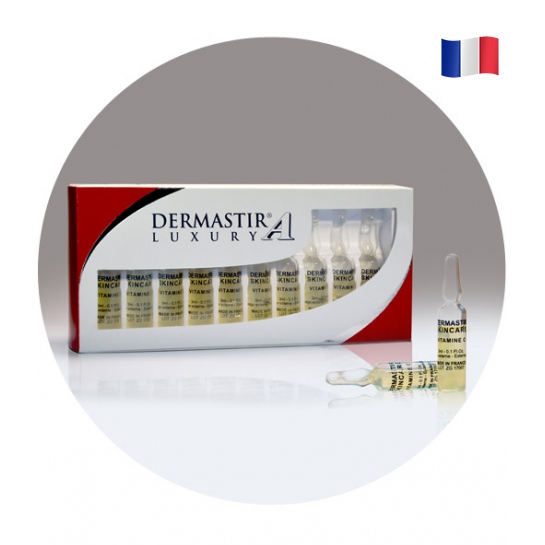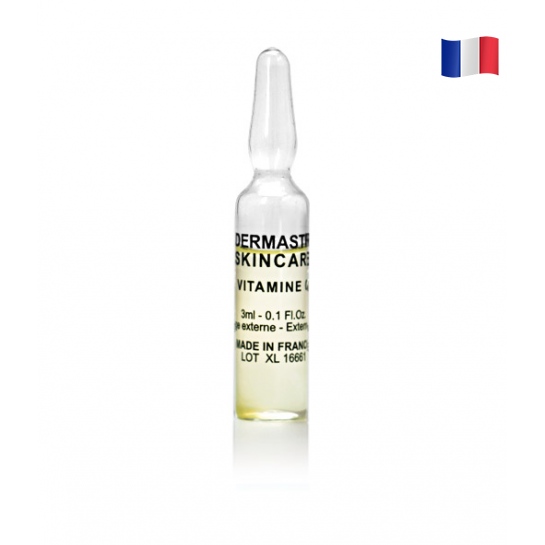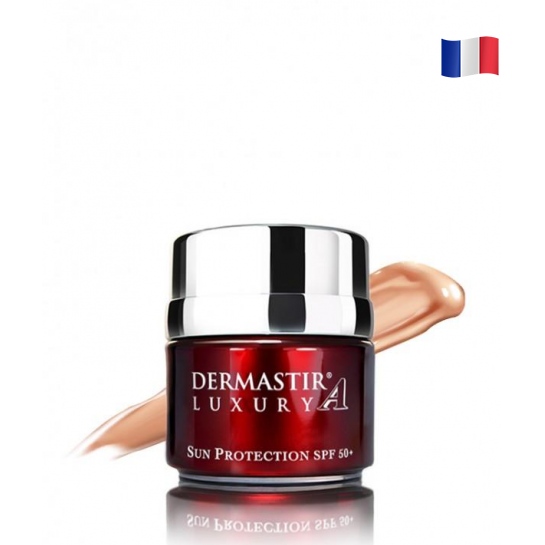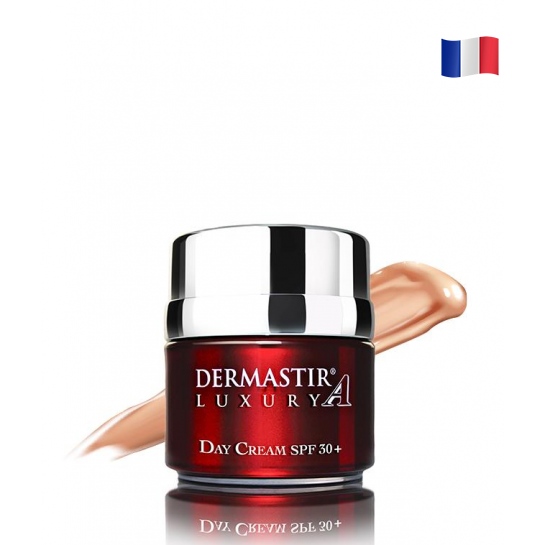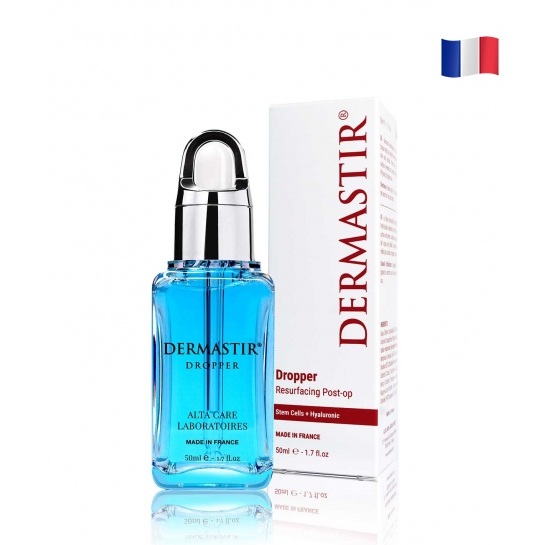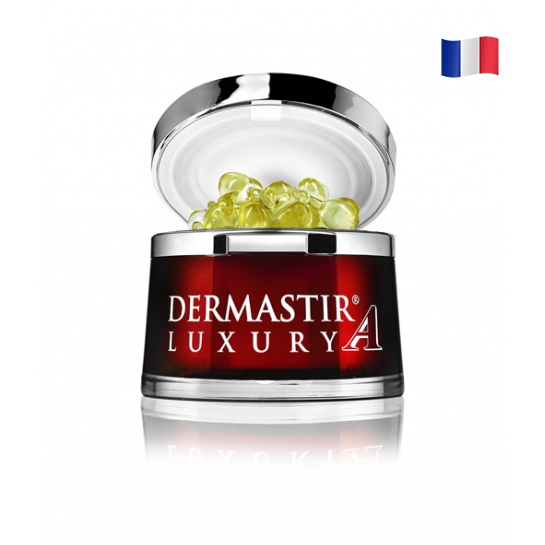Dermastir Luxury – Vitamin C Skincare Ampoule, 3ml x10
115,00€
Topical vitamin C or ascorbic acid is a popular vitamin being added to skin care products. 3ml x 10
Parameters:
| Packaging / Volume | 3ml x10 |
|---|---|
| Classification of cosmetics by purpose | For intensive facial skin care |
| Type of cosmetics | Serums, Serums – ampoules |
Purchased a product
More information:
Decription
Topical vitamin C or ascorbic acid is a popular vitamin being added to skin care products. Currently there are many advertising claims of topical formulations containing antioxidants that will protect against and reverse ageing. However, the truth is that many of the available formulations contain very low concentrations of antioxidants that are not well absorbed by the skin. On the other hand, when Vitamin C is manufactured into a stable topical formulation presented in glass ampoules, it is a powerful antioxidant that is proven to be effective in protecting against the photo-ageing of the skin.
- Improves skin appearance by reducing fine lines and wrinkles
- Proven to be effective in protecting against photo-ageing of the skin
- Wound healing as it aids in stabilizing collagen
- Protects against or lessens the severity of sunburns
- Vitamin C has a tendency to degrade rapidly; this is the reason it is presented in a glass skincare ampoule
To understand how topical vitamin C works an understanding of the relationship between free radicals and antioxidants in the body is necessary. Topical vitamin C has shown to protect the skin from UV damage caused by prolonged sun exposure by reducing the amount of free radical formation and/or sunburn cells. Exposure to UV light has also shown to decrease the naturally occurring vitamin C levels in the skin, thus topical application of vitamin C restores these photoprotectant levels. Other studies also suggest that vitamin C may play a part in the collagen biosynthetic pathway by activating collagen metabolism and dermal synthesis of elastic fibres.
Use of cosmetics
Break the top of the skincare ampoule. Distribute the precious serum directly on the skin or mix in a cream or in a mask. Massage delicately on the interested areas until completely absorbed.
NORMAL PROGRAMME
- Apply one skincare ampoule every seven days for a month.
- To consolidate the obtained results repeat phase 1.
INTENSIVE PROGRAMME
- Apply one skincare ampoule every three days for a month.
- To consolidate the obtained results repeat phase 1.
WARNINGS: Do not expose yourself to the sun. Avoid contact with eyes and in case rinse with water. The skincare ampoule tip must be broken by using a piece of cloth.
Cosmetics composition / formula
Aqua, glycerin, propylene glycol, citrus aurantium dulcis fruit extract, hydroxyethylcellulose, peg-40 hydrogenated castor oil, citrus aurantium dulcis oil, edta, limonene, linalool, citral
Please be aware that ingredient lists may change or vary from time to time. Please refer to the ingredient list on the product package you receive for the most up to date list of ingredients.
STARPTAUTISKĀS KONKURĒTSPĒJAS VEICINĀŠANAI
SIA “Flebomedika” ir noslēdzis 2016. Gada 16. Septembrī līgumu Nr.SKV-L_2016/785 ar Latvijas Investīciju un attīstības aģentūru par atbalsta saņemšanu pasākuma « Starptautiskās konkurētspējas veicināšana » ietvaros, ko līdzfinansē Eiropas Reģionālās attīstības fonds
